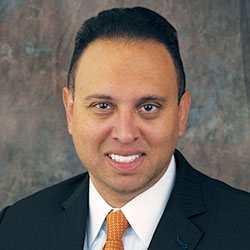By Dave Rao
Perception, hesitation and poor decisions are factors.

Why do some people let their potential for lifetime wealth slip away? Some people are better off economically at 30 or 40 than they are at 50 or 60. In some cases, fate deals them a bad hand. In other cases, bad decisions and inaction are to blame.
Some buy depreciating assets instead of allowing assets to appreciate. They rack up debt and live beyond their means. What are they spending so much on? It isn’t just consumer staples. It’s not unusual for a family to “keep up with the Joneses.”
Contrary to the bumper sticker, the person who dies with the most toys does not necessarily win. In fact, that person may leave a pile of debt and little else behind. Today’s hottest cars, clothes, flat screens, phones and tablets may be tomorrow’s junk and clutter.
Some never prioritize a retirement strategy. For many, there are opportunities to invest, whether it be through a traditional individual retirement account or a workplace retirement account. In the case of workplace retirement accounts, some companies offer matching contributions, which may be an opportunity to heighten your savings power. That being said, not everyone takes advantage of these opportunities.
Once you reach age 72, you must begin taking required minimum distributions from your 401(k) plan and traditional IRA in most circumstances. Withdrawals are taxed as ordinary income and, if taken before age 59½, may be subject to a 10% federal income tax penalty.
Some never build up an emergency fund. Financial challenges will arise, and a rainy-day fund can help you meet them. Striving to save for that rainy day also helps to promote good, lifelong saving habits.
Some invest without a strategy. Chasing the recent hot trend is a behavior that may lead to frustration instead of financial freedom. Instant wealth seldom comes from an overnight winner. These ideas don’t stop people from hazardously assigning an excessive portion of their assets to one investment.
Some accept a “forever middle class” mindset. Some people define themselves as middle class and accept that definition all their lives. The danger is that this can amount to a kind of psychological barrier, a sense that “this is it” and that “getting rich” is for others.
Behavior and belief may count as much as effort. It takes some initiative to create lifetime wealth from present-day affluence, but a person’s outlook on money (and view of its purpose) can influence that effort — for better or worse.
Dave B. Rao is the founder of RAO Wealth Partners. He focuses his practice on helping to advise physicians, corporate executives and business owners on their unique financial situations. For more info, visit raowp.com.
Our firm does not render legal or tax advice. This article was written for our firm and provided courtesy of MarketingPro. Investments in securities and insurance products are NOT FDIC-INSURED/NOT-BANK GUARANTEED/MAY LOSE VALUE. Securities and advisory services offered through Nations Financial Group, Inc. (NFGI), member FINRA/SIPC, a Registered Investment Adviser. 4000 River Ridge Dr. NE, Cedar Rapids, IA, 52402. Dave Rao is a Registered Representative of NFGI. Rao Wealth Partners is an independent firm and not affiliated with NFGI. First Clearing carries your account and acts as your custodian for funds and securities deposited directly by you, through NFGI, or as a result of transactions it processes for your account. First Clearing is a trade name used by Wells Fargo Clearing Services, LLC, Member SIPC, a registered broker-dealer and non-bank affiliate of Wells Fargo & Company.
Source: MD News October 2022, Long Island Edition
